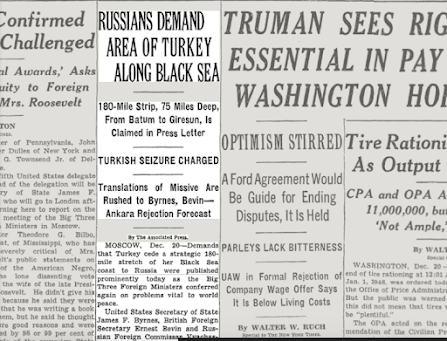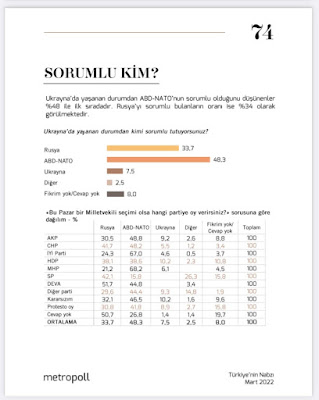Thursday, June 24, 2022
I was at a hippish-type of place in Çukurcuma, not far from the AirBnB I'd rented in Cihangir. A friend of mine runs an art gallery there and she'd invited me to a soiree. It was a nice evening. I'd always despised Cihangir, which is lousy with youngish western foreigners, but Çukurcuma is alright. A DJ was playing cool- sounding music that was dribbling in the background, and we were all sipping red wine and talking about the paintings on the walls.
 |
| It's good to be back |
A couple of dudes, old-school Turkish leftist types, started chatting me up. It turned out we had some friends in common, people I'd known from the various times of my life that I've lived in this city. Talk turned to politics and the Russia-Ukraine war, and they asked me what I thought. I deflected, half-knowing what would come next. Of course they blamed the US for everything.
Followers of contemporary Turkish politics are likely familiar with the objections that have recently been made by Turkish President Recep Tayyip Erdoğan to NATO’s proposed expansion to include Sweden and Finland, as well as Ankara’s efforts to avoid antagonizing Moscow in the aftermath of Russia’s invasion of Ukraine. Yet it is not only Erdoğan and his government which have exhibited a lack of enthusiasm for backing up Washington’s response to the Ukraine war. Turkish public opinion, too, has demonstrated a clear tendency to hold the United States and NATO, rather than Moscow, as responsible for the conflict. A poll conducted in March indicated that more than 48 percent of respondents blamed NATO and the United States for the conflict, with only 34 percent viewing Russia as the primary culprit. Later polls have borne similar results.
Even more notable is the fact that these numbers were largely consistent across the spectrum of Turkey’s fractured political landscape, with supporters of Erdoğan’s Justice and Development Party and the main opposition Republican People’s Party similarly viewing Turkey’s NATO allies, rather than Russia, as principally to blame for the war--a position that people in other countries, including the United States, have also taken.
I get it: the US caused all of this by needlessly expanding NATO into Eastern Europe, blah, blah, blah. Of course, it might be a good idea to ask why people in all of those former Warsaw Pact countries were so desperate to join NATO in the first place.
Going back even further, you could also ask the same question with respect to Turkey itself.
 |
| NYT, p1, December 21, 1945 |
These meetings, initiated by Turkey’s Republican People’s Party government, would lead to Ankara’s gradual integration with western European, and eventually American, diplomatic and military institutions. In 1949, Turkey became one of the founding members of the Council of Europe. Following the victory of the opposition Democrat Party in 1950, Turkey volunteered to send troops to fight in Korea on behalf of the US-led UN coalition. In all, Ankara would dispatch 15,000 troops in the war, suffering more than 900 casualties. In 1952, Turkey and Greece simultaneously joined NATO.
But yeah, I guess this too was just another example of Washington's war-mongering.
***
Are you a Turk across empires? Order a copy today, then get another one for your library.
More commentary, photos, and links can be found in the Borderlands Lounge.



No comments:
Post a Comment